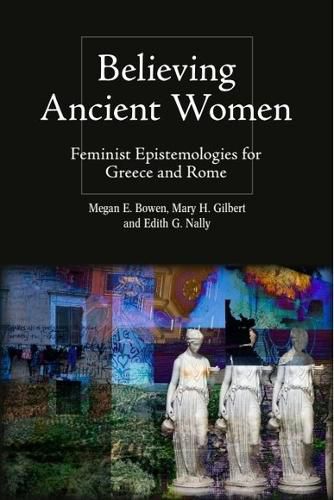Readings Newsletter
Become a Readings Member to make your shopping experience even easier.
Sign in or sign up for free!
You’re not far away from qualifying for FREE standard shipping within Australia
You’ve qualified for FREE standard shipping within Australia
The cart is loading…






This volume deploys recent feminist epistemological frameworks to analyze how concepts like knowledge, authority, rationality, objectivity and testimony were constructed in Greece and Rome. The introduction serves as a field guide to feminist epistemological interpretations of classical sources, and the following sixteen chapters treat a variety of genres and time periods, from Greek poetry, tragedy, philosophy, oratory, historiography and material culture to Roman comedy, epic, oratory, letters, law and their reception. By using an intersectional approach to demonstrate how epistemic systems exclude and pathologize the experiences of ancient women and other oppressed groups, these contributions aid in the recovery of non-dominant narratives and reveal issues of sex, gender, race, ethnicity, sexual identity, religion, age, class, familial status and citizenship in the ancient and modern world. The volume contributes to a more inclusive and equitable study of classical antiquity and builds transhistorical connections capable of exposing similar injustices in our own time.
$9.00 standard shipping within Australia
FREE standard shipping within Australia for orders over $100.00
Express & International shipping calculated at checkout
This volume deploys recent feminist epistemological frameworks to analyze how concepts like knowledge, authority, rationality, objectivity and testimony were constructed in Greece and Rome. The introduction serves as a field guide to feminist epistemological interpretations of classical sources, and the following sixteen chapters treat a variety of genres and time periods, from Greek poetry, tragedy, philosophy, oratory, historiography and material culture to Roman comedy, epic, oratory, letters, law and their reception. By using an intersectional approach to demonstrate how epistemic systems exclude and pathologize the experiences of ancient women and other oppressed groups, these contributions aid in the recovery of non-dominant narratives and reveal issues of sex, gender, race, ethnicity, sexual identity, religion, age, class, familial status and citizenship in the ancient and modern world. The volume contributes to a more inclusive and equitable study of classical antiquity and builds transhistorical connections capable of exposing similar injustices in our own time.